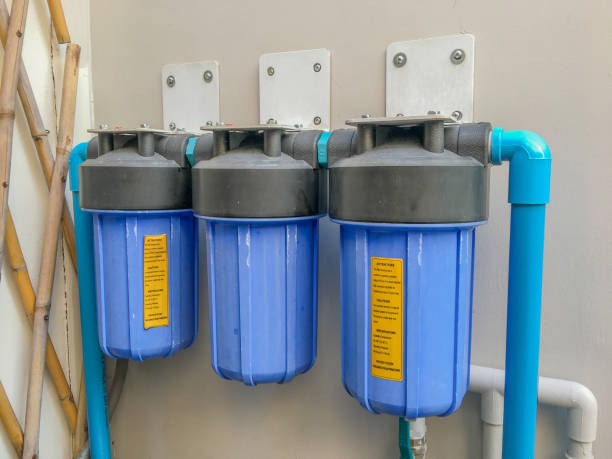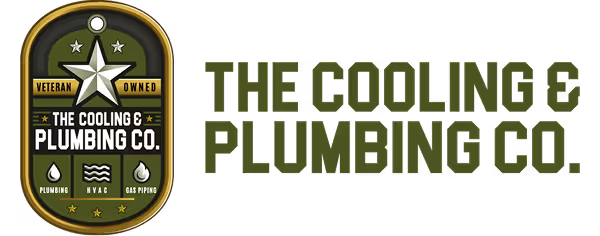Salt Free Water Softener in Rio Verde, AZ
Hard water is a common headache for Rio Verde homes: mineral scale on fixtures, reduced water heater efficiency, cloudy glassware, and more frequent plumbing service. A salt-free water softener (often called a water conditioner) offers a low-maintenance, salt-free way to manage scale without brine discharge or ongoing salt replenishment.

What a salt-free water softener (conditioner) actually does
Salt-free systems do not remove hardness minerals (calcium and magnesium) the way traditional ion-exchange softeners do. Instead, most modern salt-free units use processes such as Template Assisted Crystallization (TAC) to change the behavior of dissolved minerals. Key points:
- No brine discharge or salt use. The system conditions water without producing waste brine or adding sodium to your water.
- Scale prevention, not removal. The conditioned minerals form microscopic crystals that stay suspended and are much less likely to adhere to pipes, water heaters, fixtures, or appliances.
- Passive operation. Many salt-free systems are cartridge-based and require no ongoing chemical additions or frequent regenerations.
Common Rio Verde water issues salt-free conditioners address
Rio Verde’s desert environment and local water sources often produce water that is moderately to very hard and somewhat alkaline. Typical problems salt-free systems help with:
- Scale buildup on tank and tankless water heaters
- Mineral spots on glass shower doors and fixtures
- Reduced efficiency in heating equipment caused by scale
- Shorter intervals between plumbing scale-related repairs
What salt-free conditioners do not do:
- They do not reduce total dissolved solids (TDS), sodium, or chloride.
- They are not designed to remove dissolved iron, manganese, or biological contaminants.
- They cannot reverse existing heavy scale; they prevent new scale formation and make removal of old scale easier.
How salt-free compares with salt-based softeners
- Salt-based ion exchange systems remove hardness ions and produce genuinely “soft” water but require salt, periodic regeneration, and brine discharge. They are more effective for very hard water and for preventing laundry or skin issues related to hardness.
- Salt-free conditioners are low-maintenance, environmentally friendly, and avoid sodium addition. They are best when scale control is the primary goal and when homeowners prefer no brine discharge.
- In Rio Verde, where many homes have municipal water with moderate hardness, salt-free systems are often an excellent fit. For well water with very high hardness, high iron, or particular taste/odor issues, a salt-based system or a combination approach may be better.
Typical diagnostic process before installation
A proper assessment ensures the right solution for your Rio Verde home:
- Comprehensive water test — hardness (grains per gallon), iron and manganese levels, TDS, pH, and conductivity.
- Plumbing inspection — locate main water entry, evaluate available space, and check for existing filters or water treatment equipment.
- Usage profile — household size, peak flow requirements, and appliances (tankless vs tank water heater) determine system size and flow capacity.
- Recommendation — based on data, recommend salt-free conditioner, salt-based softener, or a hybrid setup with pre-filtration.
Installation requirements and practical considerations
- Location: Unit mounts near the main water shutoff, typically indoors or in a protected garage/utility area. Units must be accessible for cartridge/media changes.
- Pre-filtration: Sediment filters are often recommended upstream to protect the conditioner’s media and maintain flow.
- Bypass valve: Standard with installation so the system can be isolated without shutting down home water entirely.
- Electrical: Most TAC-based salt-free systems are passive and do not need power; some models with monitoring features may require a small outlet.
- Plumbing connections: Standard 3/4 or 1-inch pipe connections depending on home flow demand.
Expected results for scale control in Rio Verde homes
- Faster reduction of new scale formation on water heaters, fixtures, and faucets after installation (results typically visible within weeks).
- Cleaner glass and dishes with fewer mineral spots and streaks.
- Improved appliance longevity and maintained heating efficiency compared with untreated hard water.
- No salt bags, no brine discharge — ongoing convenience and environmental benefit.
Limitations to set expectations:
- Existing heavy scale typically requires mechanical or chemical removal; the salt-free conditioner will prevent re-accumulation.
- If iron or manganese exceed low thresholds, additional treatment is required for optimal performance.
Maintenance schedule and warranty overview
- Routine maintenance
- Sediment/pre-filter cartridge: inspect every 3 months; replace every 6–12 months depending on sediment load.
- TAC or conditioning media cartridge: expected life commonly 3–10 years depending on model and local water chemistry; replace per manufacturer schedule.
- Annual inspection by a qualified technician to confirm flow rates, connections, and media condition.
- Warranty
- Manufacturer warranties for salt-free media housings and control components commonly range from 5 to 10 years on hardware and shorter terms on consumable cartridges.
- Installer workmanship warranty is typically provided for parts and labor for the first year; verify installer warranty terms at purchase.
Cost considerations and long-term value
- Initial costs vary with system capacity, components (pre-filters, bypass valves), and installation complexity. Costs are influenced by home size, water flow needs, and whether additional filtration is required for iron or sediment.
- Long-term savings compared with untreated hard water come from reduced appliance repairs, fewer drain and heating system cleanings, and lower energy use from cleaner heating surfaces.
- Salt-free systems have lower ongoing operational costs because they do not require salt purchases or frequent regenerations.
Local water chemistry and homeowner experiences in Rio Verde
- Rio Verde’s water sources and desert climate often lead to moderately hard to hard water with alkaline pH. Many homeowners report persistent scale on outdoor faucets, pool equipment, and hot water systems prior to conditioning.
- Homeowners who switch to salt-free conditioning commonly note fewer scale-related maintenance calls, easier cleaning of showers and glass, and no need to manage salt deliveries or brine. In cases of very hard well water or significant iron, a combined approach (e.g., sediment/iron pre-treatment plus condition/softening) gives the best results.
ConclusionA salt-free water softener in Rio Verde, AZ, is a compelling option when scale control, low maintenance, and no-brine operation are priorities. Proper pre-installation water testing and matching system capacity to household flow will ensure you get predictable scale reduction and long-term protection for plumbing and water-using appliances. Regular pre-filter changes and periodic media replacement, plus adherence to manufacturer and installer warranty terms, keep the system performing as intended in Rio Verde’s desert water conditions.






